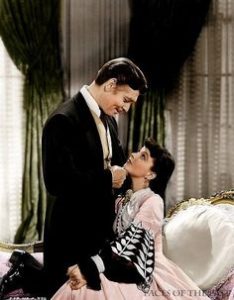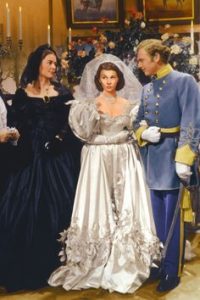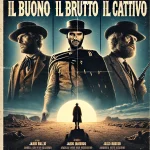Gone with the Wind (1939)

🎥 Gone with the Wind (1939) 🌹🏴☠️
Gone with the Wind is a monumental historical romance film released in 1939, directed by Victor Fleming and based on the bestselling novel by Margaret Mitchell. Set against the backdrop of the American Civil War and Reconstruction era, the film explores themes of love, loss, and resilience through the eyes of its strong-willed protagonist, Scarlett O’Hara (Vivien Leigh).

The story begins on the eve of the Civil War in Georgia, where Scarlett, the daughter of a wealthy plantation owner, is determined to win the affections of Ashley Wilkes (Leslie Howard), despite his engagement to the gentle Melanie Hamilton (Olivia de Havilland). Scarlett’s unyielding spirit and manipulative tactics highlight her character as she navigates the social complexities of her world. However, her life takes a dramatic turn when the war disrupts the South’s way of life, leading to devastation and hardship.
As the war unfolds, Scarlett’s character is tested. She faces numerous challenges, including the loss of her family’s plantation, Tara, and the harsh realities of a society in turmoil. Her determination to survive leads her to forge an unexpected alliance with the charming yet roguish Rhett Butler (Clark Gable), whose views on love and life contrast sharply with her own.

Gone with the Wind is renowned for its grand cinematography, sweeping score, and impressive set designs that vividly recreate the Old South. The film’s iconic scenes, including the burning of Atlanta and Scarlett’s vow to never be hungry again, have become etched in cinematic history. The costumes and visual artistry reflect the opulence of the time, enhancing the film’s emotional and dramatic stakes.
The performances in the film are exceptional, particularly Vivien Leigh’s portrayal of Scarlett O’Hara, which earned her an Academy Award for Best Actress. Leigh embodies Scarlett’s fierce determination and complexity, making her one of cinema’s most memorable characters. Clark Gable’s Rhett Butler is equally iconic, with his charismatic and cynical demeanor providing a counterbalance to Scarlett’s fervor.
While Gone with the Wind is celebrated as a classic, it has also faced criticism for its portrayal of race and romanticized views of the Antebellum South. The film’s depiction of slavery and its impact on society invites important discussions about historical narratives and representation in cinema.

Overall, Gone with the Wind remains a landmark film that combines romance, drama, and historical context in a way that has captivated audiences for generations. Its exploration of human resilience and the complexities of love in times of crisis makes it a timeless story. As viewers journey through the trials and triumphs of Scarlett O’Hara, they are reminded of the enduring power of hope and determination against all odds. Prepare for an unforgettable cinematic experience that showcases the beauty and tragedy of a bygone era!











